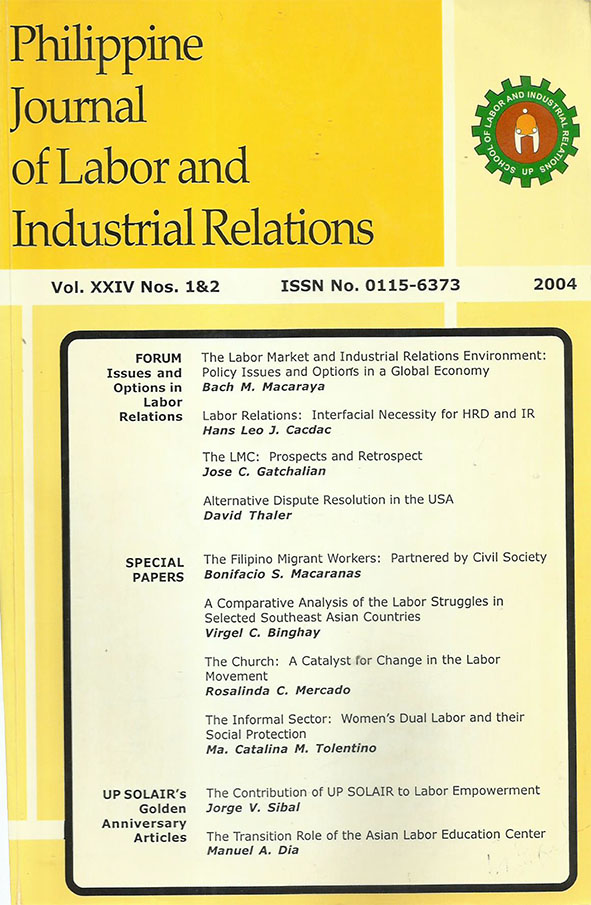Labor Relations: An Interfacial Necessity for Human Resource Development and Industrial Relations
Abstract
With the inclusion of Book V (Labor Relations) in the omnibus effort to review the Philippine Labor Code, the industrial relations system becomes a subject of scrutiny, rendering it important to consider socio-cultural, economic, political and environmental factors. Overall, this paper presents the proposition that continued adherence to the primary of collective bargaining in the Labor Code for the 21st Century sweeps the rug out of the labor market and collective behavior assumptions that should form the basis of future labor-management relations. The particular chapters printed here establish incongruities in affirming the primacy of collective bargaining under the classical framework vis-a-vis the emergent approach and basic empirical date.
Published
2021-07-23
How to Cite
CACDAC, Hans Leo J..
Labor Relations: An Interfacial Necessity for Human Resource Development and Industrial Relations.
Philippine Journal of Labor and Industrial Relations, [S.l.], v. 24, july 2021.
ISSN 0115-6373. Available at: <https://journals.upd.edu.ph/index.php/pjlir/article/view/7798>. Date accessed: 06 sep. 2025.
Section
Articles


